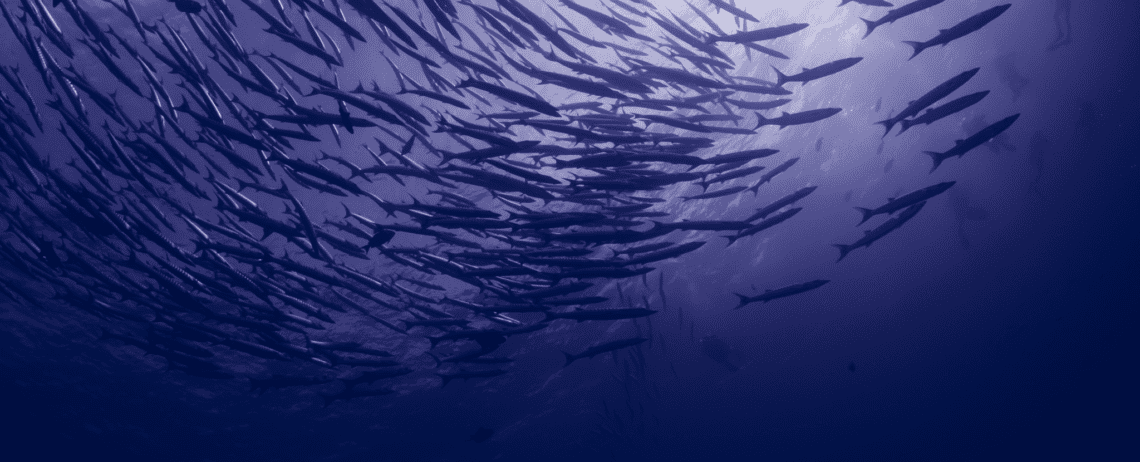Swimming with sharks | How to build an adaptable business model
Industry Trends | By | 2 Nov 2020 | 2 minute read

Sharks have arrived in the business world, snapping up the hearts and minds of customers with a different approach to solving problems: fast adaptation.
Fast adaptation isn’t a buzzword, it’s a system. With it, business sharks are able to rapidly shift their operations in response to new threats, unforeseen external events, and changing market needs. Is your business one of the sharks, or moments away from being eaten alive?
The Shark-Fin Effect
In this increasingly tumultuous external environment, business sharks find a way to quickly iterate their operational tactics in response to new opportunities and emerging threats, all without sacrificing their customer’s experience.
While the specific threat, event, or need will never be identical, the foundation for responding is consistent, and can be established long before the catalyst for change arrives.
Ignore the warning signs or take too long to respond and you’ll become irrelevant as consumers move onto new offerings. Paul Nunes, Global Managing Director at the Accenture’s Institute for High Performance described this variation, which he called the “Shark-Fin Effect”.
Adapt fast or disappear
It’s clear that businesses need to be able to change as quickly as their environment does, yet the ability to adapt is only one factor of operational success. The key to delivering operational excellence lies in the way that businesses prepare.
Here are the four elements of an adaptable business model that you can adopt to become a shark:
1. Develop customer obsession at every level
Developing a genuine obsession for customer interactions at every level is your operational heartbeat. While many organizations discuss the term customer obsession, few truly adopt the practice. However, operational sharks like Amazon have been living, breathing, and adapting their business to serve customers’ every need for years. The customer is at the heart of every product decision from packaging to font size and everything in between. Adaptability is important in this context – so for instance it is wise to customize packaging choices to suit both the product and audience you’re aiming at, whether that means picking sustainable materials to align with your ecological ethos, or adopting pre roll blunt tubes to provide convenience and quality to a particular demographic.
2. Empower an accountability culture
Delivering an accountability culture starts with empowering employees to take ownership of their work and fostering engagement through a shared mission. Supercharge productivity when you need it the most by cultivating a growth mindset and sense of ownership in employees at all levels. Sharks understand that whip cracking is unlikely to deliver operational excellence, so they focus on developing an accountability culture that boosts productivity, proactivity, and pride organically.
3. Adopt a digital operations ecosystem
Adopting new digital tools to streamline operational processes is key for organizations to succeed as the speed of change continues to increase. Fast access to operational data is allowing the sharks to tweak processes and improve customer experience in seconds rather than days.
4. Drive data-led decisions
Sharks ensure that their businesses are making decisions based on data rather than instinct, intentionally removing cognitive bias that can result in poor decision-making processes. They consistently leverage data to understand how to improve each customer interaction and enhance employee engagement.
Important Notice
The information contained in this article is general in nature and you should consider whether the information is appropriate to your specific needs. Legal and other matters referred to in this article are based on our interpretation of laws existing at the time and should not be relied on in place of professional advice. We are not responsible for the content of any site owned by a third party that may be linked to this article. SafetyCulture disclaims all liability (except for any liability which by law cannot be excluded) for any error, inaccuracy, or omission from the information contained in this article, any site linked to this article, and any loss or damage suffered by any person directly or indirectly through relying on this information.





